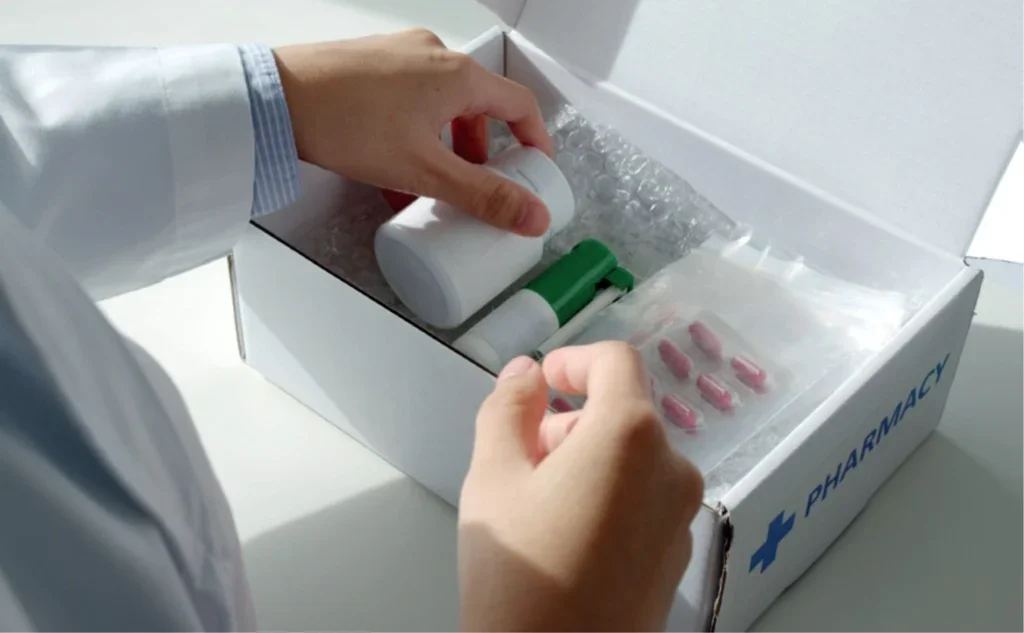
Comparator studies are becoming increasingly prevalent. Unlike a standard clinical trial, in which the investigational compound is compared with a placebo, comparator studies typically involve testing the drug against an existing treatment. The idea is to find out not just whether a drug is effective, but whether it has the edge on those already on the market.
This kind of protocol brings advantages for patients, because they’re getting some kind of treatment either way. That brings trials within the scope of seriously ill patients, who might not be eligible to receive a placebo for ethical reasons. Around two-thirds of trials today involve some kind of comparator or co-therapy, largely down to supportive efforts from agencies like the FDA.
Unfortunately, these kinds of trials bring added complexities from a sponsor perspective. As Tom Rose, SVP of clinical trial sourcing at Clinigen, explains, comparator sourcing is notoriously difficult.
“The challenge of comparator sourcing is the wide range of requirements for products over a long period of time with non-linear and less predictable demand,” he explains. “Any one of the requirements for country of origin, documentation, expiry, price, volume, lead time and batch can become a risk as a trial develops, much of which is driven by factors outside of the sponsor’s control.”

Logistical and regulatory challenges
Let’s say you’re conducting a globalised trial, in which comparators are sourced and shipped to multiple sites. You will need to contend with a patchwork of local regulation and international shipping rules, along with variations in documentation and possible fluctuations in the quality of supply.
If the product needs to be blinded (for example, patients won’t know which medication they’re taking), that can cause additional regulatory or import/export concerns. Meanwhile, temperature-controlled products can pose logistical challenges – how will you manage a network of shippers, working across multiple jurisdictions, who can ensure a comparator is kept within the optimal temperature range?
Then there’s the question of how much product to obtain. Do you want to purchase large quantities (which means thinking about manufacturer lead times and product shelf life), or only acquire as much as you think you’ll need (which means having none in reserve)? These kinds of questions apply not just to the drug itself, but also to items like infusion kits, needles and syringes. Depending on the trial in question, you might be tasked with sourcing a range of ancillary supplies.
“Comparator sourcing has always had a focus on flexibility and adaptability, but the move towards globalisation and decentralisation will push this further,” says Rose. “We certainly see that it is creating greater complexity for the sponsor to manage.”
The stats here speak for themselves. According to Almac Group, 60% of sponsors have identified comparator sourcing as a key stumbling block for losing time and money in clinical trial supply. Another survey, by Abacus Medicine Pharma Services, found that lead times and speed of sourcing were consistently among the top three challenges in this domain.
This is especially the case for clinical trials taking place in emerging markets. Currently, there is a clinical research boom under way in places like the Middle East and Africa, which has the advantage of cutting drug development costs and opening the trial to a larger population. On the flip side, it can pose a headache in terms of comparator sourcing.
Geopolitical challenges
Whatever the precise challenges a sponsor faces, they can’t get round the fact that they’re dealing with many unknowns. Despite their best-laid plans, things can go wrong at any moment, ranging from supply chain hiccups and regulatory changes to total export bans.
“We’ve seen factors like the crisis in the Suez Canal and export bans impact the availability of product and require the sourcing of alternatives, often which are hard to find owing to the narrow field of options that fit all the trial criteria,” says Rose.
The Covid-19 pandemic was a case in point. In the 2020 Abacus Medicine Pharma Services survey, nearly a quarter of respondents believed that some of their clinical trial comparator inventory was a write-off. A year later, nearly 35% of respondents said they’d had to adapt their decision-making and comparator strategy because of the pandemic, with actions such as delaying timelines or diversifying their sourcing strategy.
In Rose’s view, the most significant impact from Covid-19 was that key resources were diverted away from non-Covid-related trials.
“For the ongoing studies there were struggles in accessing products which had been previously readily available, owing to a delay in shipping or because the product was being used in Covid treatment,” he says. “For new studies, there were significant delays to the launch, which we saw take a considerable amount of time to come back.”
Another big issue over the past few years has been Brexit, which has made it harder to move goods across the UK border. As of January 2021, many branded medicines that were placed on the UK market are no longer available for export to countries in the European Economic Area.
“Comparator sourcing has always had a focus on flexibility and adaptability, but the move towards globalisation and decentralisation will push this further. We certainly see that it is creating greater complexity for the sponsor to manage.”
“A shift we have seen over recent times is a shift away from the UK following Brexit,” says Rose. “Whereas in the past the UK has been a really strong source of comparator material for clients, that has largely stopped now with the regulations in place stopping UK product being able to be used widely.”
60%
The percentage of sponsors citing comparator sourcing as a major reason for losing time and money in clinical trial supply.
Almac Group
How to manage the risks
With so many different factors at play, it is not surprising that sponsors often seek to outsource their comparator sourcing to third parties. Although outsourcing can pose its own challenges (think security concerns and added delays), many choose to work with trusted clinical supply partners with a specialism in the field.
“The most important areas of expertise in a sourcing partner are, firstly, broad sourcing options, with primary, backup, and tertiary options for each critical comparator,” says Rose. “Secondly, they need a global presence with local knowledge in key study markets; and thirdly, they need regulatory and importation expertise.”
However capable the sourcing partner, they can’t guarantee that unforeseen circumstances won’t arise. What they can do is to make sure they aren’t blindsided. Whatever happens (be it pandemic or political turmoil or permit issues), they need to have a plan in place to ensure the continuity of supply.
“The most important areas of expertise in a sourcing partner are, firstly, broad sourcing options, with primary, backup, and tertiary options for each critical comparator; secondly, they need a global presence with local knowledge in key study markets; and thirdly, they need regulatory and importation expertise.”
“Careful risk assessments and the establishment of mitigation plans by industry experts is the best way to overcome roadblocks and quickly pivot to avoid study disruptions,” says Rose.
In short, sourcing partners need to be adaptive, responsive and flexible in their approach – which also means staying abreast of industry trends. One interesting example that Rose flags up is the importance of sustainability within clinical trials.
“Excess and waste of comparators are often top of agendas,” he says. “Following Covid-19 there has certainly been a shift away from having safety stock, with more clients wanting to understand how we can support them in moving unwanted stock to other channels. We expect that this is a trend that will continue in the future, and we have in place ways to help clients achieve these goals.”
This is a sentiment that chimes with the Abacus Medicine Pharma Services survey. Several respondents said they were sourcing smaller quantities of comparators more frequently, as opposed to sourcing large quantities upfront. ‘Wastage’ emerged as a leading answer, when respondents were asked how compactor sourcing could impact a clinical trial. Rose adds that, while Clinigen itself has managed to avoid most supply challenges, the company is very attuned to the kinds of impacts they can have on trials.
“The most common responses to disruptions are delays, whether that be in terms of patient enrolment, first patient in, or, in the worst case, patient treatment,” he says. “Clearly this is top of mind for the trial sponsor. It’s a key consideration in the development of the trial protocol and the choice of comparator to minimise the risk of disruption, for which we look to lend our knowledge and expertise on the best routes for product.”
You might say the goal for comparator sourcing is simple. All you need to do is to ensure that the right quantities of product reach the right sites on time. However, as many sponsors can testify, ‘simple’ emphatically does not mean ‘easy’. Sponsors need to be strategic in their approach from the outset, with a keen eye towards the many risks and roadblocks they are likely to encounter along the way.





